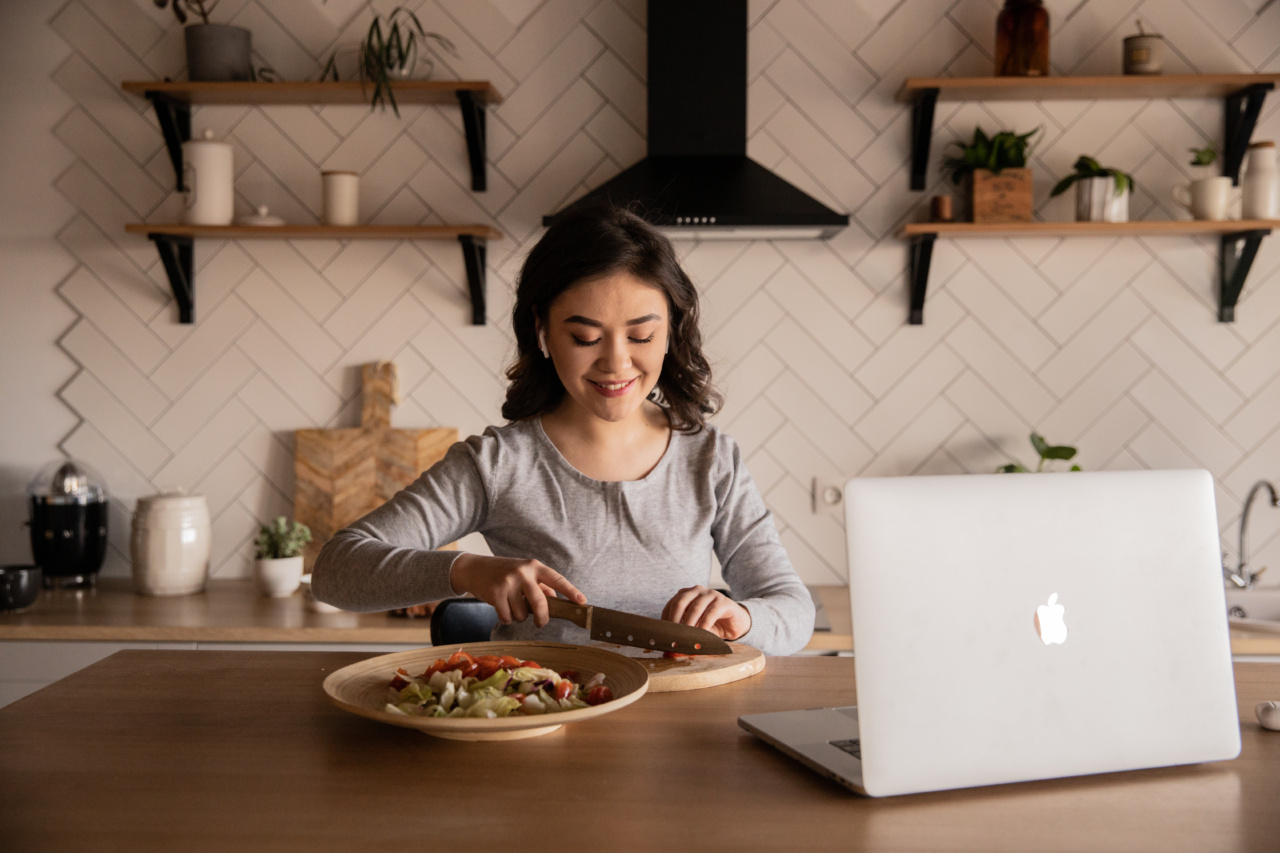With the advent of the internet, finding recipes has never been easier. A quick search on any search engine will yield hundreds, if not thousands, of recipes for any dish you can imagine.
But with so many options available, how trustworthy are internet recipes? Can we rely on them to deliver successful results every time? In this article, we will explore the trustworthiness of internet recipes and provide some tips on how to navigate this vast sea of culinary information.
1. The Source Matters
When it comes to internet recipes, the source plays a crucial role in determining their trustworthiness.
Websites run by reputable chefs, famous cooking personalities, or well-known food publications are more likely to provide reliable and tested recipes. These sources have established credibility and often have a team of experts ensuring the accuracy and success of their recipes.
However, the internet also allows anyone to publish their recipes, including inexperienced cooks or individuals with questionable culinary skills.
It is essential to consider the source’s expertise, reputation, and qualifications before trusting their recipes blindly. Look for indications of a chef’s culinary background or any accolades they may have received in the cooking world.
2. User Reviews and Ratings
One advantage of internet recipes is the ability for users to leave reviews and ratings. Checking what other people have to say about a specific recipe can provide valuable insights into its trustworthiness.
If many users have successfully tried and enjoyed the recipe, it is likely to be reliable. Conversely, if a recipe has numerous negative reviews or poor ratings, it may be wise to approach it with caution.
Keep in mind that tastes and preferences vary, so take user reviews with a grain of salt. Some people might prefer spicier dishes, while others may enjoy milder flavors.
Consider your own preferences and adjust recipes accordingly while factoring in the general feedback from users.
3. Recipe Testing and Accuracy
One of the main concerns with internet recipes is the lack of standardized testing and accuracy.
Unlike recipes published in trusted cookbooks or by renowned culinary institutions, there is no guarantee that internet recipes have been thoroughly tested for success.
Before trusting a recipe, it is a good idea to read through it carefully and evaluate its accuracy.
Are the measurements provided precise? Are the instructions clear and easy to follow? Look for recipes that provide detailed step-by-step instructions, including cooking times and temperatures, to ensure better accuracy.
If you come across discrepancies or inaccuracies in a recipe, it is recommended to cross-reference with other reliable sources. Compare multiple recipes for the same dish and look for common elements and techniques.
This can help you identify any potential errors or inconsistencies in the initial recipe.
4. User-Friendly Format
Internet recipes come in various formats, ranging from well-structured and user-friendly to disorganized and confusing. A recipe’s format can significantly impact its trustworthiness and your overall cooking experience.
Look for recipes that have clear ingredient lists with measurements and quantities stated accurately. The instructions should be concise, easy to understand, and follow a logical order.
Avoid recipes that have excessive ads, pop-ups, or unnecessary commentary, as they can distract you and make the recipe more difficult to follow.
Generally, well-formatted recipes that prioritize clarity and readability tend to be more trustworthy. This shows that the recipe creator has taken the time and effort to present their recipe in a user-friendly manner.
5. Expert Advice and Tips
Some internet recipes are accompanied by expert advice, cooking tips, or variations suggested by experienced cooks or chefs. These additional insights can provide reassurance about the recipe’s trustworthiness.
Look for recipes that provide explanations of cooking techniques, suggestions for ingredient substitutions, or tips to achieve the best results.
These valuable nuggets of advice demonstrate that the recipe has been crafted with care and consideration for the readers’ success.
6. Cultural Context
Recipes from different cultures often have a long-standing tradition and have been refined through generations. While the internet opens up access to recipes from around the world, it is crucial to consider the cultural context of certain dishes.
Recipes that are deeply embedded in a specific culture may vary significantly from one region or family to another.
Therefore, it is essential to familiarize yourself with the traditional techniques, ingredients, and flavors associated with a particular dish. Cross-reference recipes from reputable sources within that culture to ensure authenticity and accuracy.
7. Adjusting and Personalizing Recipes
One of the advantages of internet recipes is the flexibility they offer. You can adapt and personalize a recipe to suit your taste preferences, dietary restrictions, or ingredient availability.
Keep in mind that adjustments to a recipe can affect its outcome. Before making modifications, it is useful to understand the fundamental principles of cooking and how different ingredients interact.
This knowledge will help you make informed decisions and ensure that your adjustments will still result in a delicious and successful dish.
8. Professional vs. Amateur Blogs
A distinction should be made between professional cooking blogs and amateur bloggers. Professional chefs or culinary experts often manage professional blogs, whereas amateur bloggers are individuals who write about their cooking experiences.
Professional cooking blogs generally have more rigorously tested recipes and may even include scientific explanations for certain techniques.
On the other hand, amateur blogs can provide a more personal touch and reflect the cooking journey of the writer. Both types of blogs can offer trustworthy recipes. However, it is essential to consider the expertise of the blog’s author and the level of testing and accuracy employed.
9. Trust Your Senses
Even with all the precautions and considerations mentioned above, there will be times when you need to trust your own culinary instincts.
Cooking is a sensory experience, and you, as the cook, have the ability to detect when a recipe may require adjustments.
While following a recipe, stay engaged and use your senses. Taste the food as you go along and adjust seasonings if necessary. If a recipe’s instructions or measurements seem off, rely on your intuition and make modifications accordingly.
10. Building Your Trusted Recipe Sources
Building a collection of trusted recipe sources is essential for any home cook. Over time, you will discover specific websites, blogs, or chefs whose recipes consistently deliver great results.
Note down these sources and refer to them whenever you are in search of a reliable recipe.
Consider bookmarking or saving your favorite recipes on reputable food platforms like AllRecipes, Food Network, or BBC Good Food. These platforms often host a vast array of recipes from trusted sources, making it easier to find trustworthy options.
Conclusion
The trustworthiness of internet recipes can vary greatly depending on the source, accuracy, and user feedback. While there may be occasional disappointments or inconsistencies, the abundance of reliable recipes available online cannot be ignored.
With proper scrutiny, cross-referencing, and reliance on trusted sources, internet recipes can open up a world of culinary possibilities and contribute to the joy of cooking and sharing delicious meals. Happy cooking!.






























